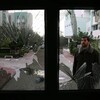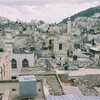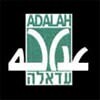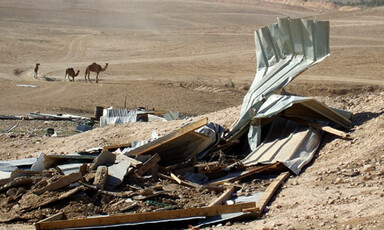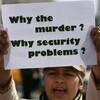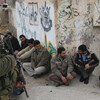
Three representations of the Israeli-Palestinian conflict in children's literature (Part 2)
5 February 2007
“Back in Tennessee, my son who had lived for three years in Ramallah, was sometimes asked to sing songs in Hebrew to celebrate Yom Kippur; he was given assignments dealing with the Holocaust; and he was told by one teacher that his impressions about the Israeli-Palestinian conflict are simply in his head. It was, therefore, not surprising at all for him to come home one day with a copy of Lynne Reid Banks’ novel Broken Bridge.” Alarmed by the racist portrayal of Arabs in the book assigned to his 12-year-old son, EI contributor Fouad Moughrabi analyzes some portrayals of the Israeli-Palestinian conflict in popular children’s literature. Read more about Three representations of the Israeli-Palestinian conflict in children's literature (Part 2)


